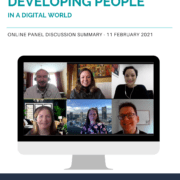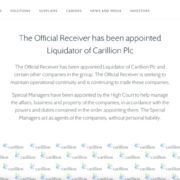Trust Talk – “Trust as an element of Customer Development”
Trust is the buzzword of the moment in Business to Business, the new elixir that clinches contracts, opens doors and pushes up profits without requiring resources or investment; it can be created, adapted and turned on and off like a tap, or, so we should believe! Our world is awash with books and conferences promoting the advantages that trust confers on organisations, yet, the majority of theories and practices advocated are either anecdotal or draw on processes developed and ported over from the Business to Consumer (B2C) arena where trust between organisations, brands and customers can be seen as a simpler and more linear process than in the sphere of B2B. But what exactly is it, and more importantly how does it work?
While, there are overlaps and similarities in the way B2C and B2B operate, there are also significant differences; in B2B the issue of trust is less straightforward, its applications are often more nuanced and have greater impact on client relationships. Existing approaches treat trust as a static concept, managed with ‘common sense’ rather than in a methodical, planned or systematic way that’s able to offer significant competitive advantage. Few studies have been made into the dynamic nature of trust within B2B relationships, or the interrelatedness of trust: How is it created (interdependence)? What are the benefits that flow from this relationship (mutual outcomes)?
When Berry in 1995 commented that “relationship marketing was being built upon a foundation of trust” (Berry, 1995, p242) , the die was already cast for trust as an actor within business to business customer relationships, setting it apart from business to consumer.
What is a “trust talk”?
A trust talk is an interactive session that aims to share the latest thinking within B2B trust research in a practical and pragmatic way. Enabling you to access new thinking in a way that is relevant and applicable to the everyday and real world.
Why bother?
When trust increases: “speed increases and costs decrease”.
We seem to intuitively understand that trust leads to a better customer relationship, however is that actually the case? Is it necessarily a bad thing to have a transactional relationship based upon ‘everyday trust’? What if we have ‘too much of a good thing’, is it bad for us? When trust is high customers have a propensity to buy more, more quickly, more confidently and more often. They stay longer and make their satisfaction known in their networks. High levels of trust have been likened to a rising tide which lifts all boats. Within organisations high trust materially improves communication, collaboration, execution, strategy, engagement, partnering and relationships with stakeholders. Over the years a number of scholars have identified the benefits that flow from the development of relationships with a high level of trust. Don’t just take our word for it……..
The economic account of trust also emphasizes its efficiency. It lowers agency and transaction cost (Frank ,1988; Jones, 1995) Promotes efficient market exchanges(Arrow, 1974; Smith et al.,1995) Improves Cooperation (Mayer et al.,1995; Ring and Van de Van, 1992; Smith et al.,1995) Enhances firms ability to adapt to complexity and change (Korsgaard et al.,1995; McAllister, 1995) It’s an essential ingredient for innovation (Hosmer, 1994)
When high levels of trust exists between B2B parties we refer to this as deep interdependence or ‘the Goldilocks Zone’; “we need to rely on each other for our success within the market and category”
Who could attend?
People in your organisation that think trust is an important element of customer relationships. How they can develop it as a relationship differentiator and competitive advantage. Those involved in customer development and customer management.
How long?
The trust talk is a highly interactive one hour session (normally over lunch). Sometimes it stretches for an extra half an hour, however we like to keep it to an hour.
What will we cover?
In ‘Trust Talk ’ we aim to demystify Trust and explore how it can be applied to customer management and development.
- We start by unpacking trust, just what is it?
- Explore defining it within a general and B2B context.
- Is it dynamic and how is this reflected on a horizontal and vertical plane
- How does it move and what does that mean to me?
- Is bad good, how do I know and what can I do about it?
- Develop your trust plan
What’s next?
If you are interested in getting more involved or would like to know more a number of options are available.
- A more detailed workshop that really gets under the skin of Trust within B2B customer relationships
- Getting involved in trust research
Contact: hello@customerattuned.com
- Excessive Trust – When Trust Goes Wrong - October 29, 2024
- Identification Based Trust - October 21, 2024
- Introducing Knowledge Based Trust - October 15, 2024



